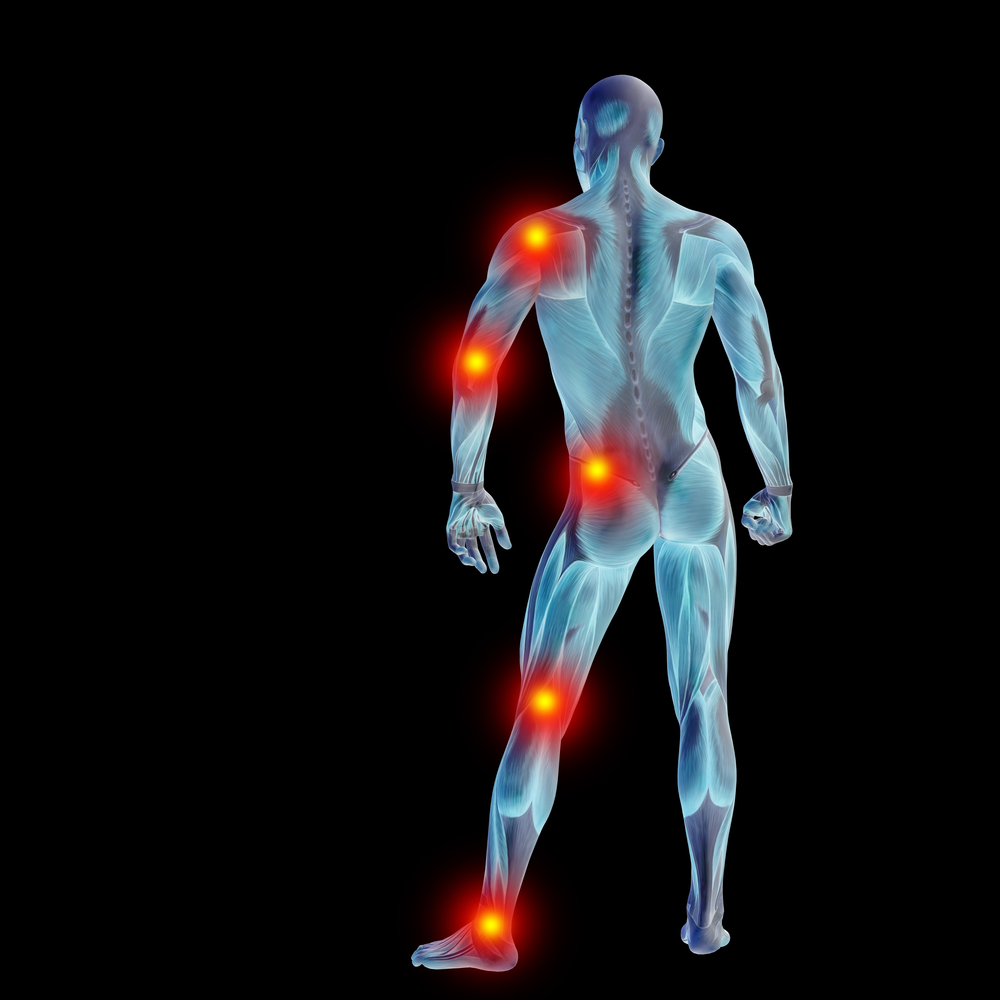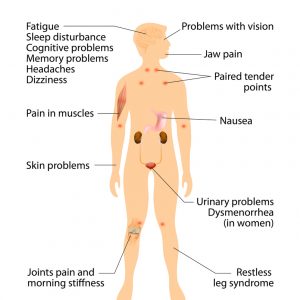Muscle Pain
Muscle pain belongs to the category of bothersome pains that can significantly affect a person’s quality of life. Since there are different types of muscle pain caused by various reasons, it’s important to diagnose the underlying cause and provide the appropriate treatment accordingly. Some common types include: herniated disc pain, back pain, generalized muscle pain, post-workout muscle pain, and chronic muscle pain.
A herniated disc, also known as an intervertebral disc prolapse, is an injury caused by strain that damages the spinal disc. It may occur from repeatedly lifting heavy objects and improper posture during lifting.
Back pain is a general term for a very common type of muscle pain that can result from a variety of causes: frequent lifting of heavy objects, injury, or trauma. Back pain can range from acute, short-term pain to chronic, long-lasting pain that significantly impacts quality of life. Pain is considered acute if it lasts up to three months, and chronic if it persists beyond that.
Muscle pain throughout the body is a key characteristic of fibromyalgia. Typically, the pain begins in one area and gradually spreads throughout the body. The nature of the pain varies and is described as burning, gnawing, tender, or stiff. People with fibromyalgia report that pain sensitivity changes depending on the time of day, weather, and the type of activity performed.
Post-exercise muscle pain refers to discomfort that may occur within 24 to 72 hours after physical activity or strenuous effort, such as lifting heavy objects. This type of pain is fundamentally different from muscle cramps experienced during exercise, and should be treated differently. It results from exposing the body to new efforts, changes in movement angles, and unfamiliar physical loads.
Bone and muscle pain – unlike muscle pain, which typically appears with movement and has a different character, bone pain can cause sensitivity and discomfort even at rest. It may be caused by various conditions affecting bone structure, including mineral deficiencies, injuries, or serious diseases like bone cancer.
Chronic muscle pain – this is a diagnostic and treatment challenge for physicians. The initial assessment includes a thorough physical evaluation, and based on the findings, the patient may be offered medication, physical therapy, or other treatments. Further tests may be required. The goal is to identify the cause of the chronic pain and improve the patient’s quality of life.
Treatment of Muscle Pain
Medication for muscle pain is offered to patients whose lifestyle is severely affected by the pain. For fibromyalgia, treatment may include pain-relief medications and sleep aids. Anti-inflammatory drugs used for rheumatic diseases do not have much effect on fibromyalgia. However, mild doses of pain relievers like aspirin, ibuprofen, or acetaminophen may help reduce pain and relieve muscle stiffness.
It is advisable to avoid narcotic painkillers, tranquilizers, and corticosteroid derivatives, as these have been shown to be ineffective and may cause serious side effects. In addition to relieving pain, medications for fibromyalgia can improve sleep quality, relax muscles, and balance neurotransmitters responsible for regulating sleep and pain. Better sleep improves overall quality of life and helps individuals cope more effectively with pain.
Treating Muscle Tightness with Willow Ointment
Muscle tightness is not dangerous, but it can limit movement and cause discomfort, leading many people to seek treatment options. Applying Willow ointment to the affected muscle, combined with gentle massage and avoiding strain on that muscle, can help alleviate the discomfort.
Examples















